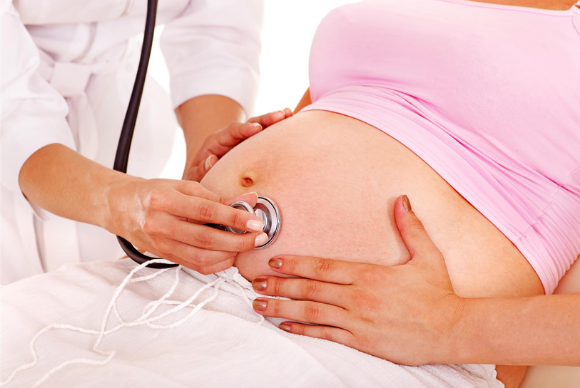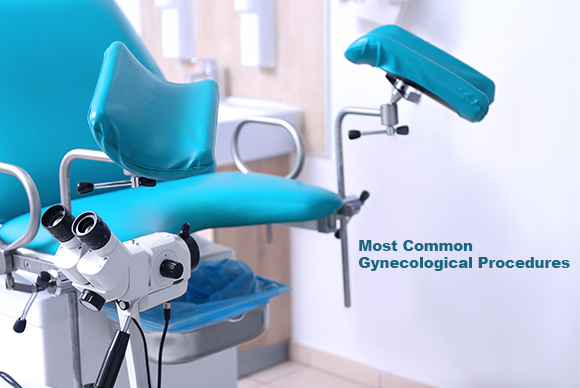5 Common Complications Faced By Pregnant Women
Carrying another life inside you is both a blessing as well as the most challenging task. Thankfully the expert gynecologist and obstetricians help you thoroughly for the same. In fact, maternity hospitals are all equipped to make this experience as comfortable and safe as possible. But there are certain complications that might make it difficult though. Here we present some complications that may arise during pregnancy.
1. Hypertension

It is also known as high blood pressure. It occurs when the blood flowing in the blood vessels exerts too much pressure. This happens when these vessels get narrowed due to some reason. This causes hindrance for the blood to reach the placenta (which provides oxygen and nutrition to the baby). This deprivation for long can cause a slower growth of the baby and can also uplift the chances of preterm labor.
2. Gestational Diabetes

It is a rather unique type of diabetes in which a pregnant woman, with no history of high blood sugar gets diagnosed with it. Even though most of the time gestational diabetes get resolves on its own, after childbirth, it uplifts the probability of several other complications during pregnancy and thus its constant treatment is required. Also, it makes the mother susceptible to diabetes in the future, so she should keep her sugar level in check.
3. Preeclampsia

It is a rather serious condition which has quite severe effects. Its causes are often unknown, but it can be a more likely scenario in case of the first pregnancy or in the case the mothers is obese or is older than 35, or carrying multiple babies or have suffered from the same condition in her previous pregnancy.
It is characterized by exceptionally high blood pressure and in case if it is left untreated it can cause organ damage.
4. Placenta Previa

As already discussed, placenta nourishes your baby before birth. The placenta is usually attached to the top of the uterus and in case of this complication, it slides down. It can cover the cervix (right on the birth canal) either partially or totally. Needless to say, it can cause a hindrance during childbirth and can make it strained labor for the mother and somewhat risky for the baby. It can be diagnosed accurately during a pre-natal scan. Extensive treatment under an expert obstetrician is crucial for such cases.
5. Severe Vomiting and Nausea

Morning sickness is quite common among expecting mother. It is characterized by feeling nausea and voting in the early morning, particularly during the first trimester. Its severe form is called hyperemesis gravidarum and it causes extreme nausea and vomiting along with weight loss, dehydration, fainting and loss of appetite that often need extensive treatment in some maternity hospital.
Good prenatal care is highly recommended for every pregnant woman along with timely medication and prenatal screening. It can ensure that any pregnancy-related complications can be addressed and treated effectively on time. Come at ILS Hospitals to have a safe pregnancy and childbirth ahead.
What Is Painless Delivery And How It Is Carried Out
The wonderful journey of motherhood begins with pregnancy and childbirth is a crucial event in it. Babies are coming into the earth since the dawn of humankind, sometimes with little to no assistance, all through natural birth. Gradually came the technique of cesarean birth, which offered some advantages for complicated birth. Nowadays, ‘painless delivery’ is being offered by many advanced obstetrician and maternity hospitals. Let’s understand what painless delivery is and how it is carried out.
The labor phase is a painful and traumatic experience for many mothers. The birthing method is a crucial factor for the same, but it also depends on the pain tolerance level of the mother and overall conditions. But thankfully, the expert obstetricians and medical science can help ease the pain these days, with the help of ‘painless delivery.’
What Is Painless Delivery?
Painless delivery is sort of a ‘nickname’ for a natural birth with the administration of a special drug called epidural. Epidural reduces pain significantly in a specific area. In case of labor, it is administrated right in the spine, cause a somewhat numbness in the lower part of the body. With epidural in your system, you are still awake and feel the contraction and can push your baby.
It is induced for natural birth as per the will of the mother or as necessity felt by the doctor. It is also administrated in case of carrying out a C-section. Even though some minor risks such as back pain, fever, and headaches are associated with the epidural, they are extremely rare and poses no long term complications.
Is Painless Delivery totally Painless?
Well, definitely not. While you are welcoming your little baby in the world, it is inevitable to feel some pain. With no epidural, the magnitude of this pain is tremendously high for many mothers. This magnitude can be significantly reduced with the administration of the epidural. With less severe labor pain, you can concentrate more on giving birth and make it a comfortable experience altogether.
Should You Consider Getting A Painless Delivery?
There is no definite yes or no answer for the same. You, along with your partner and obstetrician need to discuss all the possibilities of birth. However, in case you have a low tolerance for pain or becoming a mother for the first time, you should definitely be aware of the same and consider it as one of the options.
Most Common Gynecological Procedures
Gynecological conditions are quite common and thankfully the modern medical science can address most of them effectively. While some can be treated effectively with topical medication, some can be evaluated through non-invasive techniques, but for other condition, it becomes inevitable to use invasive techniques. Most of these procedures (both invasive and non-invasive) are carried out by expert gynecologists and obstetricians in maternity clinic and hospitals.
Here we list out some common gynecological procedures.
Dilation And Curettage
More commonly known as D & C, it is a procedure in which the doctor dilates the cervical cavity in order to remove the lining of the uterus through curettage and extract it out of the cavity through suction. It is used to diagnose any polyps or abnormal growth in the cervical cavity and it is also done to terminate any molar pregnancy and remove the fetal tissues completely after a miscarriage.
Pap Smear
This gynecological procedure should ideally be availed by every woman after the childbearing age and onwards. This procedure including extracting some tissues from the cervix using a speculum. Going for routine Pap smear can help with early detection of any malignancy in the cervix.
Breast Ultrasound
Even though breast cancer is quite common, having lumps in the breast tissue is quite common as well. Whether or not it has malignant growth, can be evaluated by ultrasonography in its original stages. A tumor that keeps growing along with warning signs like nipple discharge and pain, should be diagnosed further.
Hysteroscopy And Hysterectomy
Hysteroscopy is a non-invasive diagnostic procedure to evaluate the presence of any uterine condition. It can also offer useful insights like locating an IUD, abnormal tissue growth, evaluate reasons for repeated miscarriages.
Hysterectomy is the surgical procedure to remove the uterus if it is needed to ensure better health of the patient. Though is sound scary, it is becoming quite common these days and as per gynecologists, they are safe as well if availed form a quality healthcare provider.
Cervical Cryosurgery
Polyps and tumors in the cervix are quite common these days. Cervical cryosurgery is done for removing the tumors that do not resolve on its own. This procedure uses the cryogenic technique to freeze a section of the cervix and remove pre-cancerous cells from the lining of the cervix.
In case you need to undergo any such gynecological procedure or looking for an expert opinion to consider the same, get in touch with our highly experienced gynecologist and obstetrician at ILS Hospitals.




